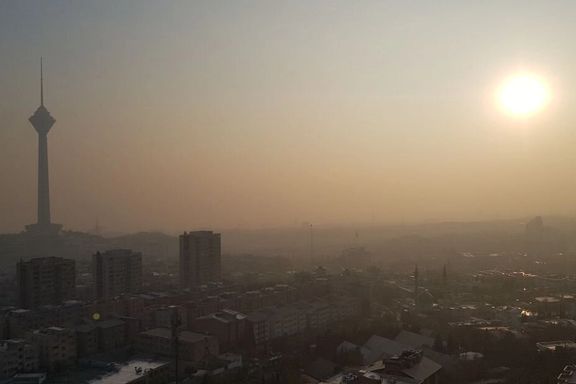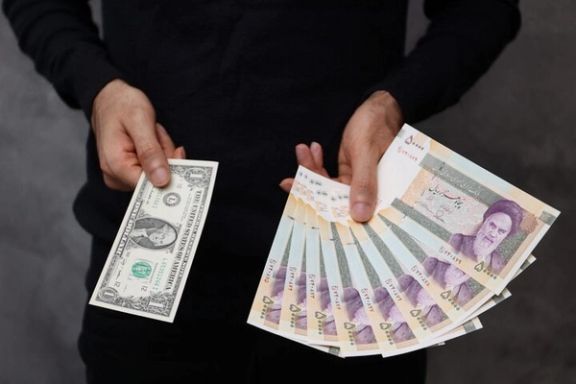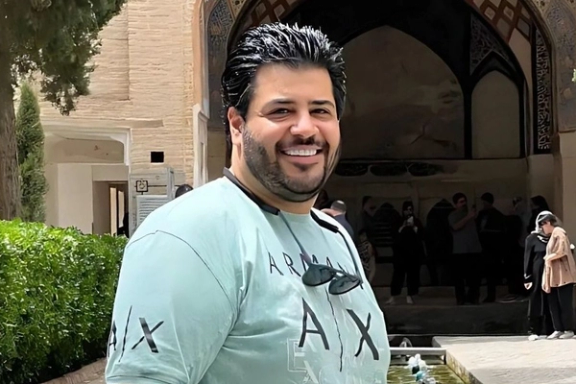The Iranian rial hit an all-time low in March, trading at one million per US dollar in March as tensions with the United States flared.
Now ahead of a third round of Iran-US nuclear talks in Oman on Saturday, the open market rate for the dollar was around 810,000 rials, while two government-controlled rates, the EST and the official rate for importing basic goods stood at 692,000 and 280,000 respectively.
Ordinary people, who often convert their savings into hard currency or gold during periods of political and international uncertainty, generally only have access to the open market.
Many businesses — and even some semi-official entities — also turn to the open market when they cannot access foreign currency through official channels or when they require immediate liquidity.
In recent years, successive governments have attempted to reform Iran’s tangled foreign exchange system to curb corruption fueled by cronyism, where favored individuals, groups and state entities secure access to cheaper rates to import goods that are later sold at much higher open market prices.
The reforms have mostly failed because entrenched political networks benefiting from the system oppose them.
The open market
Iran’s open or free foreign exchange market operates largely outside government control. It consists of authorized currency exchange shops or sarrafi as well as informal street-level transactions.
The open market -- where currencies like the US dollar, Euro, and UAE dirham are the most actively traded -- reflects real-time supply and demand. Prices in the open market are heavily influenced by inflation expectations, political risks, sanctions developments and broader economic conditions.
Open market rates typically run significantly higher than the officially controlled rates, particularly during times of instability and often provide the clearest snapshot of Iran’s underlying economic and political realities.
They serve as a crucial, unofficial benchmark that influences pricing, import costs, and inflation across the country.
The government occasionally intervenes, injecting foreign currency through selected sarrafi or cracking down on street traders they deem illegal when volatility escalates amid ramped up political tension or rapid devaluation.
Official rates for staples, medical goods
This rate, currently 285,000 rials to the dollar, is provided through designated banks to importers of basic goods such as wheat, rice, and animal feed as well as medicine and medical supplies.
The decision on allocation of this type of currency lies with related ministries and the Central Bank of Iran (CBI).
An earlier preferential rate for these imports fixed at 48,000 rials has now been almost completely scraped.
Electronic Trading System (ETS) rates
The ETS rate, closer to the free-market rate, is set by supply and demand within the Electronic Trading System (ETS) of the Iran Center for Currency and Gold Exchange.
Established in late February 2022, the center was intended to provide a formal platform for cash currency exchanges to undercut the open market.
While exchange rates on ETS are determined by market forces, the CBI actively supervises the platform, intervening by injecting or limiting foreign currency supplies to influence rates.
This managed market — accessible to licensed banks and exchange offices — handles both cash transactions and informal transfers called hawala. Transactions that previously took place through a system dubbed NIMA are now also routed through ETS.
The defunct NIMA system
The NIMA system, an acronym for integrated system of foreign exchange, was created to regulate foreign currency earned through exports and allocate it for imports of non-essential goods and services. It was officially scrapped in January.
Within NIMA, transactions occurred between exporters and importers under CBI supervision, with the central bank setting a floor and ceiling for permissible exchange rates.
For years, NIMA served as the government’s primary tool for managing the trade balance and controlling the flow of foreign currency.
Its elimination marked a significant shift toward market-based pricing mechanisms — albeit still heavily managed — through the ETS platform.
Corruption amid multiple rates
Several major corruption scandals have rocked Iran in recent years, many of which stem from its multi-tiered exchange rate system.
The Debsh Tea Company scandal is one of the most recent and possibly largest embezzlement cases in the history of the Islamic Republic.
High-ranking officials from various ministries, the Customs Administration and the Central Bank were implicated in the scandal that first came to public attention in 2023.
The family-owned company received $3.37 billion in subsidized foreign currency (at the NIMA rate) to import tea and machinery but sold $1.4 billion of the currency it had received in the open market at higher rates, did not import the promised equipment and allegedly imported low-quality tea it labelled as premium-grade.














